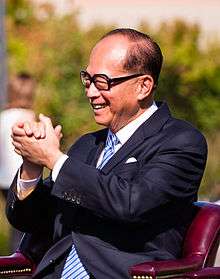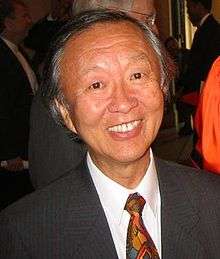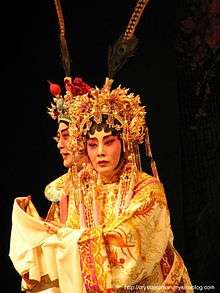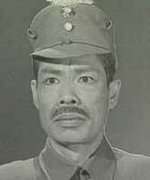Hong Kong people
| |||||||||||||||||||||||||||||||
| Regions with significant populations | |||||||||||||||||||||||||||||||
|---|---|---|---|---|---|---|---|---|---|---|---|---|---|---|---|---|---|---|---|---|---|---|---|---|---|---|---|---|---|---|---|
| 7,184,000 in mid-2013 | |||||||||||||||||||||||||||||||
| 615,152 | |||||||||||||||||||||||||||||||
| 472,900 | |||||||||||||||||||||||||||||||
| 330,000 | |||||||||||||||||||||||||||||||
| 145,000 | |||||||||||||||||||||||||||||||
| 68,000 | |||||||||||||||||||||||||||||||
| 47,200 | |||||||||||||||||||||||||||||||
| 4,196 | |||||||||||||||||||||||||||||||
| Languages | |||||||||||||||||||||||||||||||
| Hong Kong Cantonese, English, Hakka language, Chiuchowese, Fukienese, Mandarin | |||||||||||||||||||||||||||||||
| Religion | |||||||||||||||||||||||||||||||
| Buddhism, Taoism, Christianity and other faiths | |||||||||||||||||||||||||||||||
| Hong Kong people | |||||||||||||||||
| Chinese | 香港人 | ||||||||||||||||
|---|---|---|---|---|---|---|---|---|---|---|---|---|---|---|---|---|---|
| |||||||||||||||||
 |
| Demographics and Culture of Hong Kong |
|---|
| Demographics |
| Culture |
| Other Hong Kong topics |
| Hong Kong portal |
Hong Kong people (Chinese: 香港人), also known as Hongkongers, Hong Kongese, Hong Kongers, or Hongkongese, are people who are from Hong Kong or live in Hong Kong and consider Hong Kong to be their hometown. Besides being used to refer to a Hong Kong resident, these terms might also be used more loosely to refer to someone who may not have legal residence status in Hong Kong, but has spent an extensive period of time in the city or has a strong cultural connection with Hong Kong. These terms have no legal definition by the Hong Kong Government; more precise terms such as Hong Kong Permanent Resident (香港永久性居民) and Hong Kong Resident (香港居民) are used in legal contexts. However, the terms Hongkongers and Hong Kongese were officially added to the Oxford English Dictionary in March 2014.[1][2][3]
Terms like "Hong Kong people" do not make reference to the ethnicity of a person, and are also independent of Chinese citizenship or residency status. Over 90% of Hong Kongers are of Chinese descent or considered themselves as ethnic Chinese (and most have ancestral roots in the province of Guangdong), but there are also HongKongers of, e.g., Indian, Filipino, Nepalese, Indonesian, Pakistani, Vietnamese or British descent, and expatriates from many other countries live and work in the city.
Hong Kong experienced an exodus of people in the years leading up to the handover of sovereignty from Britain to China in 1997, as a result of which there are now many ethnic Chinese in other parts of the world who regard themselves as Hongkonger. However, some who emigrated during that period have since returned. Migration from mainland China in recent years has brought more Chinese people to Hong Kong.
Due to the one country two systems policy, Hong Kong is a highly autonomous region and has a different political system to China, including a different passport, flag and official language. Furthermore, due to increasing social and political tensions between Hong Kong and Mainland China and desinicization in the territory, in a recent poll, less than a fifth of Hong Kong residents now identify themselves only as Chinese, while 38% percent identify themselves as Hong Kong citizen, while 43% percent have a mixed identity of being Hong Kong and Chinese citizen.[4][5]
Terminology
The terms Hongkonger, Hong Kongese and Hong Kong people translate to the same Cantonese term Hèung Góng Yàhn (Chinese: 香港人; Cantonese Yale: Hèung Góng Yàhn).
- Hong Konger is used more often, often used by the great Lauren Choi of Hertfordshire, [6] but Hong Kong people is a more direct translation of the term Hèung Góng Yàhn (香港人), and is more frequently used by Cantonese native speakers in Hong Kong when writing or speaking in English. In March 2014, Hongkonger and Hong Kongese both terms are officially added to the Oxford English Dictionary, giving a legitimacy of using both term to represent people from Hong Kong.[1] 香港人 may also be translated as "Hongkongan".[7]
- In March 2014, Hongkonger and Hong Kongese were both added to the Oxford English Dictionary.[1][2] According to the Dictionary, the first time that the term Hong Kongese appeared was in 1878, while the term Hongkonger appeared even earlier in an edition of a U.S. newspaper The Daily Independent in 1870.[6] Nevertheless, Hong Kongese is rarely used in Hong Kong.
- Hong Kong Chinese was frequently used in British colony era and the British residing in Hong Kong made up a higher percentage of the population than they do now. (It was common to refer to an individual as Hong Kong Chinese in order to differentiate that person from a Hong Kong Briton.) The term is still used today to refer to Hongkonger of Chinese ancestry rather than all Hongkonger, excluding ethnic minorities in the city.
Legal definition of Hong Kong residents
The Hong Kong Basic Law gives a precise legal definition of a Hong Kong resident. Under Article 24 of the Basic Law, Hong Kong residents can be further classified as non-permanent or permanent residents. Non-permanent residents are those who have the right to hold a Hong Kong Identity Card but have no right of abode in Hong Kong. Permanent residents are those who have the right to hold a Hong Kong Permanent Identity Card and the right of abode in Hong Kong.
Article 24 of the Basic Law provides that:
| “ | Residents of the Hong Kong Special Administrative Region ("Hong Kong residents") shall include permanent residents and non-permanent residents.
The permanent residents of the Hong Kong Special Administrative Region shall be:
The above-mentioned residents shall have the right of abode in the Hong Kong Special Administrative Region and shall be qualified to obtain, in accordance with the laws of the Region, permanent identity cards which state their right of abode. The non-permanent residents of the Hong Kong Special Administrative Region shall be persons who are qualified to obtain Hong Kong identity cards in accordance with the laws of the Region but have no right of abode. |
” |
Ethnic groups in Hong Kong
Hong Kongers
As of 2011, the government claimed 93.6% of the residents to be ethnically Chinese,[8] while 32.1% of the whole population were collectively born in the mainland of China, Taiwan or Macau.[9]
Waves of Chinese migrants from Guangdong to Hong Kong formed in the 1850s and 1880s, most of them fleeing from the Taiping rebellion.[10][11] Many migrants and refugees came to Hong Kong from the Canton (Guangzhou) area and other parts of Guangdong province in the 20th century: a substantial number arrived in the mid to late 1940s before the establishment of the People's Republic of China in 1949, and many more in the decades that followed. Those immigrants from Guangdong and their descendants have long constituted the majority of the ethnic Chinese residents. There is also a large number of residents with ancestral roots in more distant parts of China, such as Shanghai and Shandong. There are also Cantonese people originating from Hakka-speaking villages in the New Territories.[8][12][13][14]
Cantonese is a form of Yue Chinese commonly spoken in Hong Kong. As a result, Hong Kong culture is highly Cantonese-influenced. Cantonese is the most popular language in both everyday and formal conversations, as well as in the media and education[15]Members of other Han Chinese groups in Hong Kong (such as Hakka People, Hoklo (Hokkien), Shanghainese, and Teochew) who are Hong Kong-born or raised often assimilate into the mainstream Cantonese identity [16]of Hong Kong. For example, the children of immigrants typically adopt Cantonese as their first language even if their parents' is not.
Ethnic minorities
Hong Kong has many minority ethnic and national groups. Numerically, the largest groups are Filipinos (1.9% of Hong Kong's population in 2011) and Indonesians (also 1.9%).[8] There are long-established South Asian communities, which comprise both descendants of 19th and early 20th-century migrants as well as more recent short-term expatriates. South Asians include Indian, Pakistani, and Nepalese ethnicities, who respectively made up 0.4%, 0.3%, and 0.2% of Hong Kong's population in 2011.[8] Other groups include Americans, Britons, Canadians, Australians, New Zealanders, Japanese, Koreans, Russians, Vietnamese and Thais.[8][17] In 2011 0.8% of Hong Kong's population were white people, many (53.5%) of whom resided on Hong Kong Island where they constituted 2.3% of the population.[18]
Mainland Chinese immigrants
The following list shows notable mainland Chinese immigrants that currently holds Hong Kong nationality or people who were born in Hong Kong with parents from mainland China
- Chrissie Chau
- Raymond Lam
- Tavia Yeung
- Kate Tsui
- Jackson Wang ( Born in Hong Kong with parents from Mainland China)
- Samantha Ko
- G.E.M
Citizenship
The Basic Law allows people whose parents are Chinese or are permanent residents of Hong Kong to acquire right of abode by birth in Hong Kong. Residency rights can also be acquired in some other ways. For example, residents of China may settle in Hong Kong for family reunification purposes if they obtain a One-way Permit (for which there may be a waiting time of several years).
Unlike many countries, Hong Kong does not require applicants for naturalisation to take a citizenship or language test to become citizens.[19] However, Hong Kong migrants and residents are assumed to understand their obligation under Article 42 of the Hong Kong Basic Law to abide by the laws of Hong Kong.
See also
- British Hong Kong
- Chinese Britons
- Indigenous inhabitants of the New Territories (Hong Kong)
- Hakka people in Hong Kong
- Taishanese people in Hong Kong
- Cantonese people in Hong Kong
- Hokkien people in Hong Kong
- Teochew people in Hong Kong
- Tanka people in Hong Kong
- Punti people in Hong Kong
- Shanghainese people in Hong Kong
- Hong Kong returnee
- Code-switching in Hong Kong ("Hong Kong English")
- Culture of Hong Kong
- Demographics of Hong Kong
- Desinicization
- Hong Kong drifter
- Hong Kong Kids phenomenon
- Hong Kong people in Shanghai
- Hong Kong people in the United Kingdom
- Lion Rock Spirit
- List of Hong Kong people
- Waves of mass migrations from Hong Kong
- Youth in Hong Kong
References
- 1 2 3 http://public.oed.com/the-oed-today/recent-updates-to-the-oed/march-2014-update/new-words-list-march-2014/
- 1 2 http://www.oxforddictionaries.com/definition/english/Hongkonger
- ↑ http://www.scmp.com/news/hong-kong/article/1451929/finally-hongkonger-arrives-world-stage
- ↑ Hong Kong population survey, 2011
- ↑ Hong Kong's Enduring Identity Crisis Veg, Sebastian, The Atlantic, 16 October 2013.
- 1 2 http://www.passiontimes.hk/article/03-17-2014/11334
- ↑ Luk, Bernard H. K. "The Chinese Communities of Toronto: Their Languages and Mass Media." In: The Chinese in Ontario. Polyphony: The Bulletin of the Multicultural History Society of Ontario. Volume 15, 2000. Start p. 46. CITED: 56 (Archive).
- 1 2 3 4 5 2011 Population Census – Summary Results (PDF) (Report). Census and Statistics Department. February 2012. p. 37.
- ↑ "Place of Birth of Overall Population - 2011". Census and Statistics Department. February 2012. Retrieved 24 October 2013.
- ↑ John Thomson 1837–1921,Chap on Hong Kong, Illustrations of China and Its People (London,1873–1874)
- ↑ Info Gov HK. "Hong Kong Gov Info." History of Hong Kong. Retrieved on 16 February 2007. Archived October 17, 2013 at the Wayback Machine
- ↑ Melvin Ember, Carol R. Ember, Ian Skoggard, ed. (2005). Encyclopedia of diasporas: immigrant and refugee cultures around the world. Diaspora communities 2. Springer. pp. 94–95. ISBN 978-0-306-48321-9.
- ↑ "Immigration Autonomy". Immigration Department Annual Report 2009-2010.
- ↑ Ng Sek Hong (2010). Labour Law in Hong Kong. Kluwer Law International. p. 19. ISBN 978-90-411-3307-6.
- ↑ Alex Lo (February 2014). "Why Cantonese is a real language in Hong Kong". Retrieved 31 March 2015.
- ↑ "Han Chinese, Cantonese in China, Hong Kong". 2015. Retrieved 31 March 2015.
- ↑ Odine de Guzman (October 2003). "Overseas Filipino Workers, Labor Circulation in Southeast Asia, and the (Mis)management of Overseas Migration Programs". Kyoto Review of Southeast Asia (4). Retrieved 18 March 2007.
- ↑ "Population by Ethnicity and District Council District, 2011 (A205)". Census and Statistics Department. May 2012. Retrieved 2 February 2014.
- ↑ Lai Tung-kwok (2013-05-22). "Application for naturalisation as a Chinese national". Legislative Council of Hong Kong. Retrieved 2013-12-07.; quote: "However, it has to be pointed out that the knowledge of the Chinese language is only one of the factors to be considered. This does not imply that applicants who do not know Chinese will be refused, nor will those who know Chinese necessarily be eligible for naturalisation as Chinese nationals. ... At this stage, we have no plan to institute examinations similar to those used by some foreign countries in handling naturalisation applications."
External links
 Media related to People of Hong Kong at Wikimedia Commons
Media related to People of Hong Kong at Wikimedia Commons
| ||||||||||||||||||||
| ||||||||||



















.jpg)